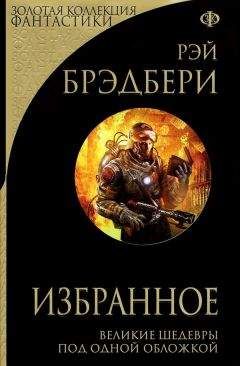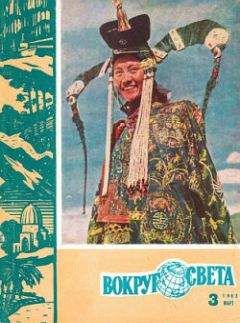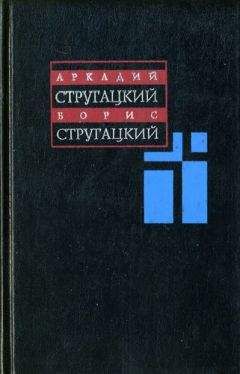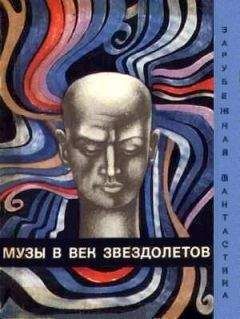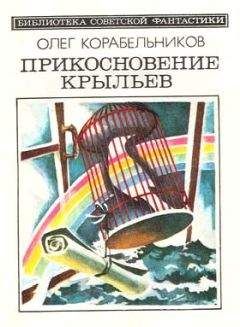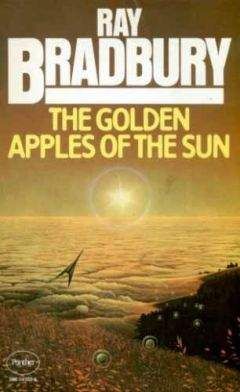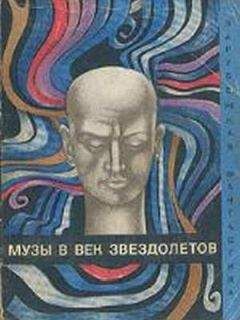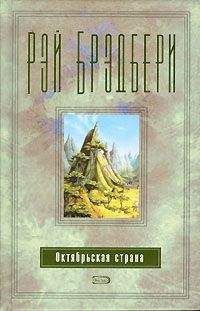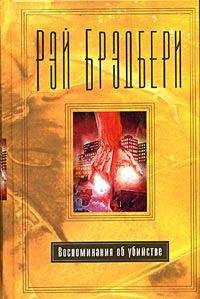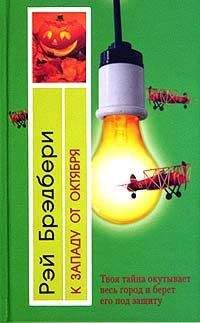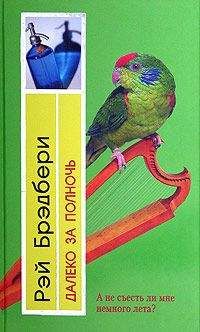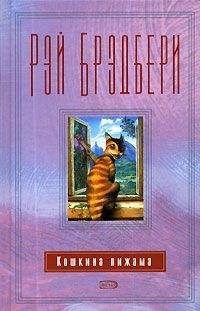Рэй Бредбери - Октябрьская страна (The October Country), 1955
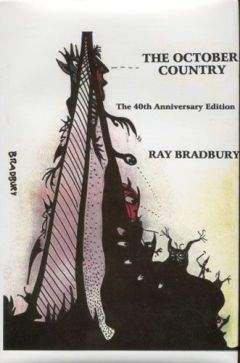
Скачивание начинается... Если скачивание не началось автоматически, пожалуйста нажмите на эту ссылку.
Жалоба
Напишите нам, и мы в срочном порядке примем меры.
Описание книги "Октябрьская страна (The October Country), 1955"
Описание и краткое содержание "Октябрьская страна (The October Country), 1955" читать бесплатно онлайн.
И вновь сборник «ужастиков» раннего Брэдбери, разбавленных поздними житейско-психологическими историями («Прикосновение пламени»). Из ранних своих запасов писатель извлёк на свет настоящие жемчужины: такие как «Озеро» и «Коса».
He pointed his camera at two men who seemed in conversation, mouths in mid-sentence, hands gesticulant and stiffened over some long-dissolved gossip.
Joseph clicked the shutter, rolled the film, focused the camera on another body, clicked the shutter, rolled the film, walked on to another.
Eighty-one, eighty-two, eighty-three. Jaws down, tongues out like jeering children, eyes pale brown-irised in upclenched sockets. Hairs, waxed and prickled by sunlight, each sharp as quills embedded on the lips, the cheeks, the eyelids, the brows. Little beards on chins and bosoms and loins. Flesh like drumheads and manuscripts and crisp bread dough. The women, huge ill-shaped tallow things, death-melted. The insane hair of them, like nests made and unmade and remade. Teeth, each single, each fine, each perfect, in jaw. Eighty-six, eighty-seven, eighty-eight. A rushing of Marie's eyes. Down the corridor, flicking. Counting, rushing, never stopping. On! Quick! Ninety-one, ninety-two, ninety-three! Here was a man, his stomach open, like a tree hollow where you dropped your child love letters when you were eleven! Her eyes entered the hole in the space under his ribs. She peeked in. He looked like an Erector set inside. The spine, the pelvic plates. The rest was tendon, parchment, bone, eye, beardy jaw, ear, stupefied nostril. And this ragged eaten cincture in his navel into which a pudding might be spooned. Ninety-seven, ninety-eight! Names, places, dates, things!
"This woman died in childbirth!"
Like a little hungry doll, the prematurely born child was wired, dangling, to her wrist.
"This was a soldier. His uniform still half on him--"
Marie's eyes slammed the furthest wall after a back-forth, back-forth swinging from horror to horror, from skull to skull, beating from rib to rib, staring with hypnotic fascination at paralyzed, loveless, fleshless loins, at men made into women by evaporation, at women made into dugged swine. The fearful ricochet of vision, growing, growing, taking impetus from swollen breast to raving mouth, wall to wall, wall to wall, again, again, like a ball hurled in a game, caught in the incredible teeth, spat in a scream across the corridor to be caught in claws, lodged between thin teats, the whole standing chorus invisibly chanting the game on, on, the wild game of sight recoiling, rebounding, reshuttling on down the inconceivable procession, through a montage of erected horrors that ended finally and for all time when vision crashed against the corridor ending with one last scream from all present!
Marie turned and shot her vision far down to where the spiral steps walked up into sunlight. How talented was death. How many expressions and manipulations of hand, face, body, no two alike. They stood like the naked pipes of a vast derelict calliope, their mouths cut into frantic vents. And now the great hand of mania descended upon all keys at once, and the long calliope screamed upon one hundred-throated, unending scream.
Click went the camera and Joseph rolled the film. Click went the camera and Joseph rolled the film.
Moreno, Morelos, Cantine, Gomez, Gutierrez, Villanousul, Ureta, Licon, Navarro, Iturbi; Jorge, Filomena, Nena, Manuel, Jose, Tomas, Ramona. This man walked and this man sang and this man had three wives; and this man died of this, and that of that, and the third from another thing, and the fourth was shot, and the fifth was stabbed and the sixth fell straight down dead; and the seventh drank deep and died dead, and the eighth died in love, and the ninth fell from his horse, and the tenth coughed blood, and the eleventh stopped his heart, and the twelfth used to laugh much, and the thirteenth was a dancing one, and the fourteenth was most beautiful of all, the fifteenth had ten children and the sixteenth is one of those children as is the seventeenth; and the eighteenth was Tomas and did well with his guitar; the next three cut maize in their fields, had three lovers each; the twenty-second was never loved; the twenty-third sold tortillas, patting and shaping them each at the curb before the Opera House with her little charcoal stove; and the twenty-fourth beat his wife and now she walks proudly in the town and is merry with new men and here he stands bewildered by this unfair thing, and the twenty-fifth drank several quarts of river with his lungs and was pulled forth in a net, and the twenty-sixth was a great thinker and his brain now sleeps like a burnt plum in his skull.
"I'd like a color shot of each, and his or her name and how he or she died," said Joseph. "It would be an amazing, an ironical book to publish. The more you think, the more it grows on you. Their life histories and then a picture of each of them standing here."
He tapped each chest, softly. They gave off hollow sounds, like someone rapping on a door.
Marie pushed her way through screams that hung net-wise across her path. She walked evenly, in the corridor center, not slow, but not too fast, toward the spiral stair, not looking to either side. Click went the camera behind her.
"You have room down here for more?" said Joseph.
"Si, senor. Many more."
"Wouldn't want to be next in line, next on your waiting list."
"Ah, no, senor, one would not wish to be next."
"How are chances of buying one of these?"
"Oh, no, no, senor. Oh, no, no. Oh no, senor."
"I'll pay you fifty pesos."
"Oh, no, senor, no, no, senor."
In the market, the remainder of candy skulls from the Death Fiesta were sold from flimsy little tables. Women hung with black rebozos sat quietly, now and then speaking one word to each other, the sweet sugar skeletons, the saccharine corpses and white candy skulls at their elbows. Each skull had a name on top in gold candy curlicue; Jose or Carmen or Ramon or Tena or Guiermo or Rosa. They sold cheap. The Death Festival was gone. Joseph paid a peso and got two candy skulls.
Marie stood in the narrow street. She saw the candy skulls and Joseph and the dark ladies who put the skulls in a bag.
"Not really," said Marie.
"Why not?" said Joseph.
"Not after just now," she said.
"In the catacombs?"
She nodded.
He said, "But these are good."
"They look poisonous."
"Just because they're skull-shaped?"
"No. The sugar itself looks raw, how do you know what kind of people made them, they might have the colic."
"My dear Marie, all people in Mexico have colic," he said.
"You can eat them both," she said.
"Alas, poor Yorick," he said, peeking into the bag.
They walked along a street that was held between high buildings in which were yellow window frames and pink iron grilles and the smell of tamales came from them and the sound of lost fountains splashing on hidden tiles and little birds clustering and peeping in bamboo cages and someone playing Chopin on a piano.
"Chopin, here," said Joseph. "How strange and swell." He looked up. "I like that bridge. Hold this." He handed her the candy bag while he clicked a picture of a red bridge spanning two white buildings with a man walking on it, a red serape on his shoulder. "Fine," said Joseph.
Marie walked looking at Joseph, looking away from him and then back at him, her lips moving but not speaking, her eyes fluttering, a little neck muscle under her chin like a wire, a little nerve in her brow ticking. She passed the candy bag from one hand to the other. She stepped up a curb, leaned back somehow, gestured, said something to restore balance, and dropped the bag.
"For Christ's sake." Joseph snatched up the bag. "Look what you've done! Clumsy!"
"I should have broken my ankle," she said, "I sup-pose."
"These were the best skulls; both of them smashed; I wanted to save them for friends up home."
"I'm sorry," she said, vaguely.
"For God's sake, oh, damn it to hell." He scowled into the bag. "I might not find any more good as these. Oh, I don't know, I give up!"
The wind blew and they were alone in the street, he staring down into the shattered debris in the bag, she with the street shadows all around her, sun on the other side of the street, nobody about, and the world far away, the two of them alone, two thousand miles from anywhere, on a street in a false town behind which was nothing and around which was nothing but blank desert and circled hawks. On top the State Opera House, a block down, the golden Greek statues stood sun-bright and high, and in a beer place a shouting phonograph cried AY, MARIMBA … corazon … and all kinds of alien words which the wind stirred away.
Joseph twisted the bag shut, stuck it furiously in his pocket.
They walked back to the two-thirty lunch at the hotel.
He sat at the table with Marie, sipping Albondigas soup from his moving spoon, silently. Twice she commented cheerfully upon the wall murals and he looked at her steadily and sipped. The bag of cracked skulls lay on the table….
"Senora …"
The soup plates were cleared by a brown hand. A large plate of enchiladas was set down.
Marie looked at the plate.
There were sixteen enchiladas.
She put her fork and knife out to take one and stopped. She put her fork and knife down at each side of her plate. She glanced at the walls and then at her husband and then at the sixteen enchiladas.
Sixteen. One by one. A long row of them, crowded together.
She counted them.
One, two, three, four, five, six.
Joseph took one on his plate and ate it.
Six, seven, eight, nine, ten, eleven.
She put her hands on her lap.
Twelve, thirteen, fourteen, fifteen, sixteen. She finished counting.
"I'm not hungry," she said.
He placed another enchilada before himself. It had an interior clothed in a papyrus of corn tortilla. It was slender and it was one of many he cut and placed in his mouth and she chewed it for him in her mind's mouth, and squeezed her eyes tight.
"Eh?" he asked.
"Nothing," she said.
Thirteen enchiladas remained, like tiny bundles, like scrolls.
He ate five more.
"I don't feel well," she said.
"Feel better if you ate," he said.
"No."
He finished, then opened the sack and took out one of the half-demolished skulls.
"Not here?" she said.
"Why not?" And he put one sugar socket to his lips, chewing. "Not bad," he said, thinking the taste. He popped in another section of skull. "Not bad at all."
She looked at the name on the skull he was eating.
Marie, it said.
It was tremendous, the way she helped him pack. In those newsreels you see men leap off diving-boards into pools, only, a moment later when the reel is reversed, to jump back up in airy fantasy to alight once more safe on the diving-board. Now, as Joseph watched, the suits and dresses flew into their boxes and cases, the hats were like birds darting, clapped into round, bright hatboxes, the shoes seemed to run across the floor like mice to leap into valises. The suitcases banged shut, the hasps clicked, the keys turned.
"There!" she cried. "All packed! Oh, Joe, I'm so glad you let me change your mind."
She started for the door.
"Here, let me help," he said.
"They're not heavy," she said.
"But you never carry suitcases. You never have. I'll call a boy."
"Nonsense," she said, breathless with the weight of the valises.
A boy seized the cases outside the door. "Senora, par favor!"
"Have we forgotten anything?" He looked under the two beds, he went out on the balcony and gazed at the plaza, came in, went to the bathroom, looked in the cabinet and on the washbowl. "Here," he said, coming out and handing her something. "You forgot your wrist watch."
"Did I?" She put it on and went out the door.
"I don't know," he said. "It's damn late in the day to be moving out."
"It's only three-thirty," she said. "Only three-thirty."
"I don't know," he said, doubtfully.
He looked around the room, stepped out, closed the door, locked it, went downstairs, jingling the keys.
She was outside in the car already, settled in, her coat folded on her lap, her gloved hands folded on the coat. He came out, supervised the loading of what luggage remained into the trunk receptacle, came to the front door and tapped on the window. She unlocked it and let him in.
"Well, here we go!" She cried with a laugh, her face rosy, her eyes frantically bright. She was leaning forward as if by this movement she might set the car rolling merrily down the hill. "Thank you, darling, for letting me get the refund on the money you paid for our room tonight. I'm sure we'll like it much better in Guadalajara tonight. Thank you!"
"Yeah," he said.
Inserting the ignition keys he stepped on the starter.
Nothing happened.
He stepped on the starter again. Her mouth twitched.
"It needs warming," she said. "It was a cold night last night."
He tried it again. Nothing.
Marie's hands tumbled on her lap.
He tried it six more times. "Well," he said, lying back, ceasing.
"Try it again, next tune it'll work," she said.
"It's no use," he said. "Something's wrong."
"Well, you've got to try it once more."
He tried it once more.
"It'll work, I'm sure," she said. "Is the ignition on?"
"Is the ignition on," he said. "Yes, it's on."
"It doesn't look like it's on," she said.
"It's on." He showed her by twisting the key.
"Now, try it," she said.
"There," he said, when nothing happened. "I told you."
"You're not doing it right; it almost caught that time," she cried.
"I'll wear out the battery, and God knows where you can buy a battery here."
"Wear it out, then. I'm sure it'll start next time!"
"Well, if you're so good, you try it." He slipped from the car and beckoned her over behind the wheel. "Go ahead!"
She bit her lips and settled behind the wheel. She did things with her hands that were like a little mystic ceremony; with moves of hands and body she was trying to overcome gravity, friction and every other natural law. She patted the starter with her toeless shoe. The car remained solemnly quiet. A little squeak came out of Marie's tightened lips. She rammed the starter home and there was a clear smell in the air as she fluttered the choke.
"You've flooded it," he said. "Fine! Get back over on your side, will you?"
He got three boys to push and they started the car downhill. He jumped in to steer. The car rolled swiftly, bumping and rattling. Marie's face glowed expectantly. "This'll start it!" she said.
Nothing started. They rolled quietly into the filling station at the bottom of the hill, bumping softly on the cobbles, and stopped by the tanks.
She sat there, saying nothing, and when the attendant came from the station her door was locked, the window up, and he had to come around on the husband's side to make his query.
The mechanic arose from the car engine, scowled at Joseph and they spoke together in Spanish, quietly.
She rolled the window down and listened.
"What's he say?" she demanded.
The two men talked on.
"What does he say?" she asked.
The dark mechanic waved at the engine. Joseph nodded and they conversed.
"What's wrong?" Marie wanted to know.
Joseph frowned over at her. "Wait a moment, will you? I can't listen to both of you."
The mechanic took Joseph's elbow. They said many words.
"What's he saying now?" she asked.
Подписывайтесь на наши страницы в социальных сетях.
Будьте в курсе последних книжных новинок, комментируйте, обсуждайте. Мы ждём Вас!
Похожие книги на "Октябрьская страна (The October Country), 1955"
Книги похожие на "Октябрьская страна (The October Country), 1955" читать онлайн или скачать бесплатно полные версии.
Мы рекомендуем Вам зарегистрироваться либо войти на сайт под своим именем.
Отзывы о "Рэй Бредбери - Октябрьская страна (The October Country), 1955"
Отзывы читателей о книге "Октябрьская страна (The October Country), 1955", комментарии и мнения людей о произведении.





